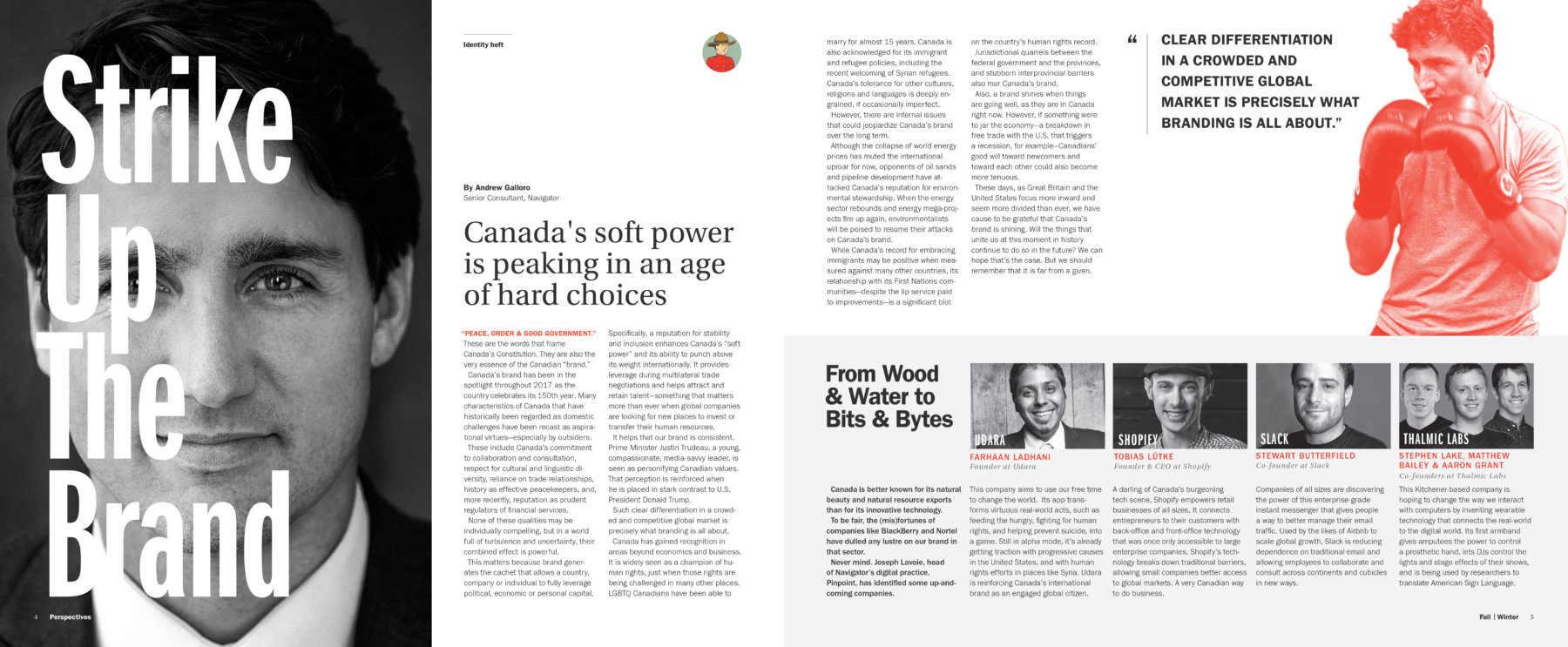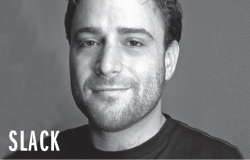- CEOCap
- Jaime Watt’s Debut Bestseller ‘What I Wish I Said’
- Media Training
- The Push Back
- Internship program
- Update Your Profile
- Homepage
- It’s time for a change
- It’s time for a change
- Kio
- Ottawa
- Art at Navigator
- Navigator Limited Ontario Accessibility Policy
- Virtual Retreat 2020 Closing Remarks
- COVID-19 Resources
- Offices
- Navigator Sight: COVID-19 Monitor
- Navigator Sight: COVID-19 Monitor – Archive
- Privacy Policy
- Research Privacy Policy
- Canadian Centre for the Purpose of the Corporation
- Chairman’s desk
- ELXN44
- Media
- Perspectives
- Podcasts
- Subscribe
- Crisis
- Reputation
- Government relations
- Public affairs campaigns
- Capital markets
- Discover
- true
- How we win
- What we believe
- Who we are
- Careers
- Newsroom
- AI
- Empower by Navigator
- Environmental responsibility

Canada’s soft power is peaking in an age of hard choices
“PEACE, ORDER & GOOD GOVERNMENT.”
These are the words that frame Canada’s Constitution. They are also the very essence of the Canadian “brand.”
Canada’s brand has been in the spotlight throughout 2017 as the country celebrates its 150th year. Many characteristics of Canada that have historically been regarded as domestic challenges have been recast as aspirational virtues—especially by outsiders.
These include Canada’s commitment to collaboration and consultation, respect for cultural and linguistic diversity, reliance on trade relationships, history as effective peacekeepers, and, more recently, reputation as prudent regulators of financial services.
None of these qualities may be individually compelling, but in a world full of turbulence and uncertainty, their combined effect is powerful.
This matters because brand generates the cachet that allows a country, company or individual to fully leverage political, economic or personal capital. Specifically, a reputation for stability and inclusion enhances Canada’s “soft power” and its ability to punch above its weight internationally. It provides leverage during multilateral trade negotiations and helps attract and retain talent—something that matters more than ever when global companies are looking for new places to invest or transfer their human resources.
It helps that our brand is consistent. Prime Minister Justin Trudeau, a young, compassionate, media-savvy leader, is seen as personifying Canadian values. That perception is reinforced when he is placed in stark contrast to U.S. President Donald Trump.
Clear differentiation in a crowded and competitive global market is precisely what branding is all about.
Canada has gained recognition in areas beyond economics and business. It is widely seen as a champion of human rights, just when those rights are being challenged in many other places. LGBTQ Canadians have been able to marry for almost 15 years. Canada is also acknowledged for its immigrant and refugee policies, including the recent welcoming of Syrian refugees. Canada’s tolerance for other cultures, religions and languages is deeply engrained, if occasionally imperfect.
However, there are internal issues that could jeopardize Canada’s brand over the long term.
Although the collapse of world energy prices has muted the international uproar for now, opponents of oil sands and pipeline development have attacked Canada’s reputation for environmental stewardship. When the energy sector rebounds and energy mega-projects fire up again, environmentalists will be poised to resume their attacks on Canada’s brand.
While Canada’s record for embracing immigrants may be positive when measured against many other countries, its relationship with its First Nations communities—despite the lip service paid to improvements—is a significant blot on the country’s human rights record.
Jurisdictional quarrels between the federal government and the provinces, and stubborn interprovincial barriers also mar Canada’s brand.
Also, a brand shines when things are going well, as they are in Canada right now. However, if something were to jar the economy—a breakdown in free trade with the U.S. that triggers a recession, for example—Canadians’ good will toward newcomers and toward each other could also become more tenuous.
These days, as Great Britain and the United States focus more inward and seem more divided than ever, we have cause to be grateful that Canada’s brand is shining. Will the things that unite us at this moment in history continue to do so in the future? We can hope that’s the case. But we should remember that it is far from a given.
From Wood & Water to Bits & Bytes
Canada is better known for its natural beauty and natural resource exports than for its innovative technology.
To be fair, the (mis)fortunes of companies like BlackBerry and Nortel have dulled any lustre on our brand in that sector.
Never mind. Joseph Lavoie, head of Navigator’s digital practice, Pinpoint, has identified some up-and-coming companies.

FARHAAN LADHANI | Founder at Better Place (formerly Udara)
This company aims to use our free time to change the world. Its app transforms virtuous real-world acts, such as feeding the hungry, fighting for human rights, and helping prevent suicide, into a game. Still in alpha mode, it’s already getting traction with progressive causes in the United States, and with human rights efforts in places like Syria. Better Place is reinforcing Canada’s international brand as an engaged global citizen.

TOBIAS LÜTKE | Founder & CEO at Shopify
A darling of Canada’s burgeoning tech scene, Shopify empowers retail businesses of all sizes. It connects entrepreneurs to their customers with back-office and front-office technology that was once only accessible to large enterprise companies. Shopify’s technology breaks down traditional barriers, allowing small companies better access to global markets. A very Canadian way to do business.

STEWART BUTTERFIELD | Co-founder at Slack
Companies of all sizes are discovering the power of this enterprise-grade instant messenger that gives people a way to better manage their email traffic. Used by the likes of Airbnb to scale global growth, Slack is reducing dependence on traditional email and allowing employees to collaborate and consult across continents and cubicles in new ways.

STEPHEN LAKE, MATTHEW BAILEY & AARON GRANT | Co-founders at Thalmic Labs
This Kitchener-based company is hoping to change the way we interact with computers by inventing wearable technology that connects the real-world to the digital world. Its first armband gives amputees the power to control a prosthetic hand, lets DJs control the lights and stage effects of their shows, and is being used by researchers to translate American Sign Language.
